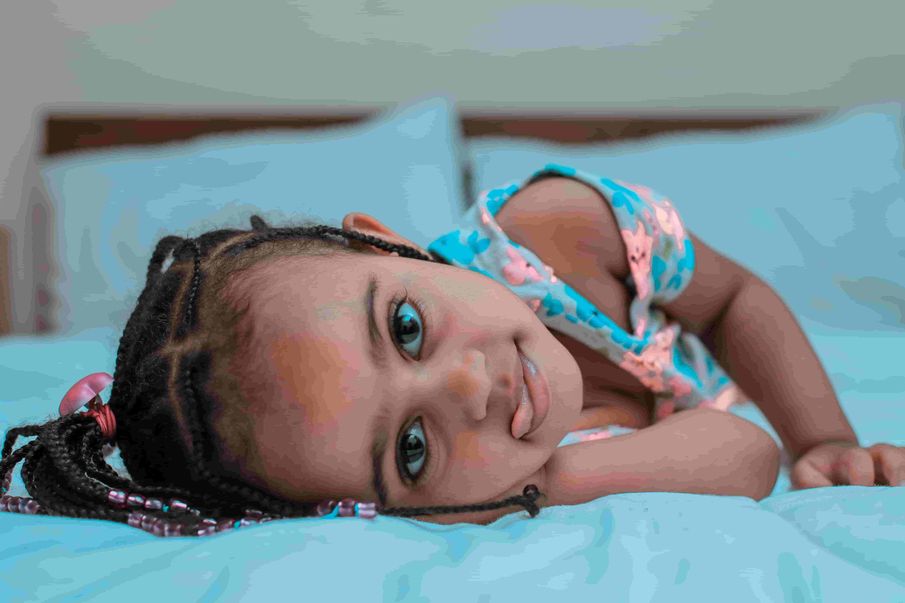Public Health England (PHE) has partnered with leading mental health charities to launch new guidance and resources to help you support your child’s mental health right now
Back to school can signal a stressful period for children and parents alike. New teachers, different classes, changes to routines, perhaps even a whole new school - not to mention the pressure of homework and exams. Yet, 2020 has brought a whole new slew of worries and pressure for young people to focus on.
Today, a new campaign has launched to help and support children, young people, and their parents’ mental health and wellbeing. Supported by leading mental health and children’s charities, Better Health: Every Mind Matters has been put together by PHE. Designed to help young people aged 5-18, the campaign has created messaging and resources to directly help young people aged 13-18, for parents and carers of children and young people to share with those aged 5-18, as well as additional engagement through school resources.
The campaign aims to help equip parents and carers of young people to take action, protect and improve children and young people’s mental wellbeing, provide support for those who are at greater risk of their mental health worsening, as well as to build mental resilience to navigate the pandemic and ongoing mental health challenges.
Offering tips to help adults spot the signs that children and teens may be struggling with their mental health, as well as advice on how to support them, a short film has also been released to highlight the importance of speaking up and asking for help when you need it.
Featuring Davina McCall, Katie piper, Marvin Humes, and Edith Bowman reading a short story about what it means to be brave, the short film was illustrated by Charlie Mackesy, the artist behind the illustrations for The Boy, the Mole, the Fox and the Horse.
It was revealed earlier this year that up to a third of young people have reported experiencing more mental health difficulties over the course of lockdown. For many, this has led to missed school, college, trouble completing schoolwork, difficulty sleeping, as well as behaviour issues, according to children’s charity Barnardo’s. 41% reported increased feelings of loneliness since lockdown began, whilst many reported feeling more worried (38%), sad (37%), or stressed (34%).
An earlier report released by The Childhood Trust also highlighted a range of concerns affecting children and young people due to the pandemic, including mental health, loss of learning opportunities, and concerns about overall wellbeing.
According to the latest data from PHE, over half of parents feel that the mental wellbeing of their children has been one of their biggest concerns over recent months, yet more than one in five (22%) felt not knowing what to do has stopped them from supporting their child’s mental wellbeing. More than a third (38%) said they want more advice on how they can support children when they return to school.
Supported by leading national mental health and young people’s charities including Young Minds, The Mix, Place2Be, Heads Together, and Rethink Mental Illness, the Every Mind Matters site is now offering:
- Advice for parents and carers on how to look after a child’s mental health.
- Self-care video advice, tips, and techniques for young people.
- Specific coronavirus and wellbeing advice on what you can do if you are feeling lonely, have trouble sleeping, are worried about coronavirus, and more.
- A quick quiz to help discover ways to deal with stress and anxiety, boost your mood, and feel more in control.
- Further advice on getting urgent support, and ways in which you can help others.
The past few months have been hard on everyone, including children and young people. But there are lots of things we can do to support their wellbeing at this time. Check out the #EveryMindMatters website (https://t.co/5MbqgXakHk) where you'll find tips and advice. pic.twitter.com/IGtgLpJSQ2
— West London NHS Trust (@westlondonnhs) September 8, 2020
If you are worried about a child or teen’s mental health or wellbeing, there are a number of different websites and resources available. YoungMinds have put together tips, advice and guidance for teens on how they can cope with coronavirus and mental health, as well as a handy guide to help adults supporting children and teens during the pandemic.
If sleep has become an issue, The Mix has put together expert advice to help young people better understand why they may be struggling with insomnia, sleep disorders, nightmares, or may feel unable to sleep.
If you are worried your child or teen may be feeling anxious, Childline’s Calm Zone explains a wide variety of activities and tools, including breathing exercises, yoga, games, ways to express yourself, and more, to help children let go of stress.
For more information on how you can help look after a child or young person’s mental health, check out the Every Mind Matters site for parents and carers.
Want to talk to children about mental health, but unsure where to start? We spoke with counsellors to find out their top tips for how to talk to kids about mental health.


Comments